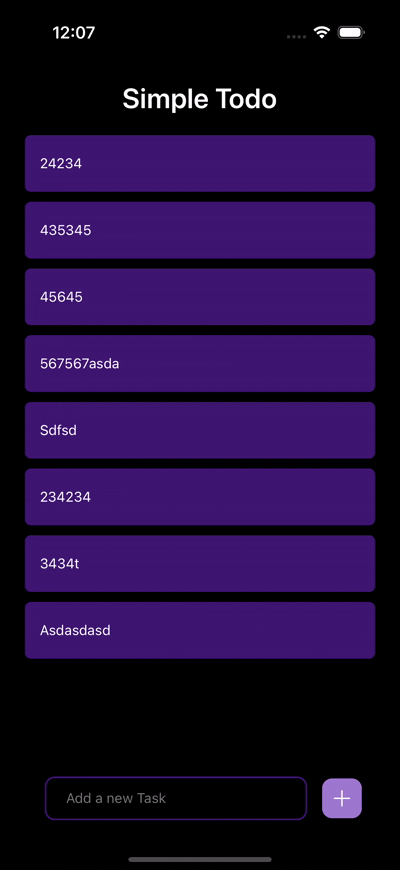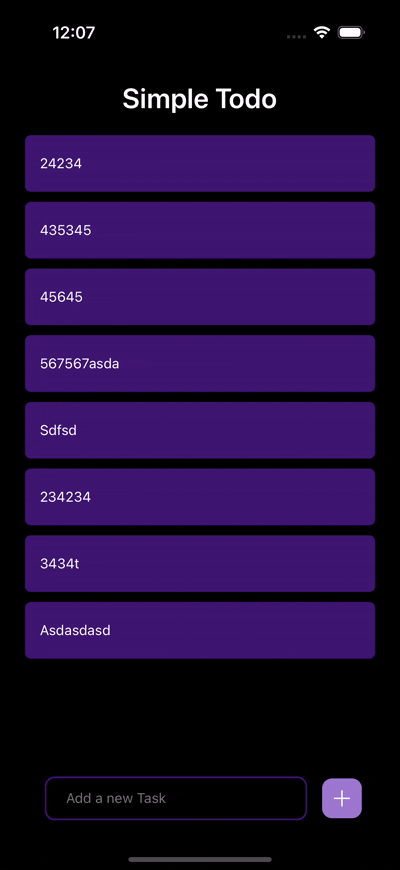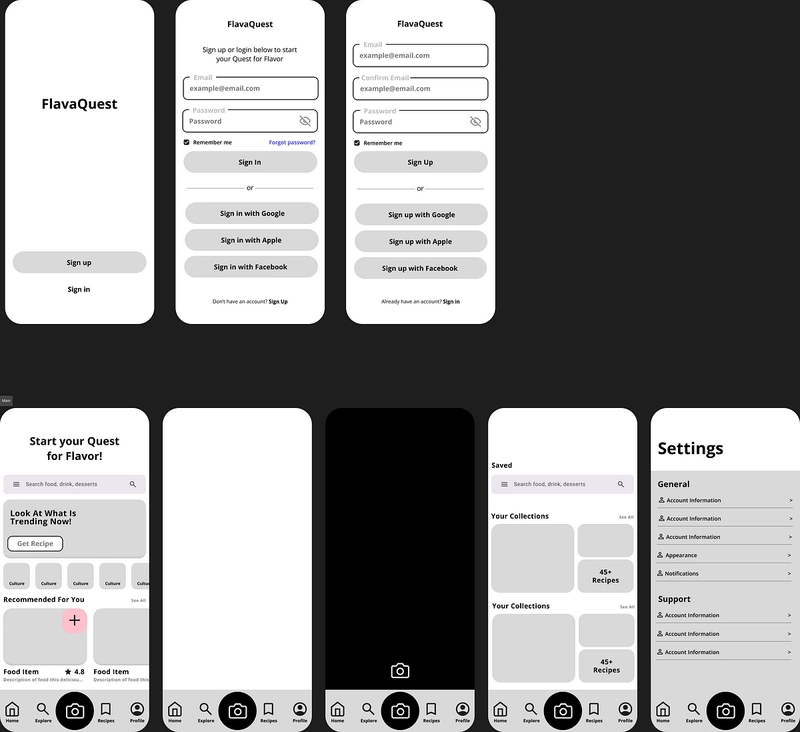Looking to learn React Native by building something practical and stylish? In this tutorial, we’ll walk through building a Swipable ToDo App from scratch—complete with gesture support, optimized logic, and a minimalist UI. You’ll pick up core concepts like state management, component separation, memoization, and animations using react-native-gesture-handler.
Whether you're a beginner or an intermediate dev, this guide is for you!
🚀 What We'll Build
A functional and clean ToDo app with gesture-based actions. Users will be able to:
- ✅ Add a Task
- ✏️ Edit a Task (via right swipe)
- ❌ Delete a Task (via left swipe)
- 📱 Enjoy a modern, stylish user interface
🧩 Code Structure
To keep things clean and modular, we’ve separated the swipeable logic into its own component (ListView.js), while keeping the main logic inside ToDoComponent.js.
🔁 Swipable ListView Component
This handles gesture detection and UI for swipe actions.
import React, { useRef } from 'react';
import { StyleSheet, Text, TouchableOpacity, View } from 'react-native';
import { Swipeable } from 'react-native-gesture-handler';
import { DeleteIcon, EditIcon } from '../../assets';
import {Swipeable} from 'react-native-gesture-handler';
const ListView = ({
item,
index,
onContentPress = () => {},
onDeletePress = () => {},
openRowRef,
setInput,
}) => {
const swipeableRef = useRef(null);
const handleSwipeableOpen = () => {
setInput('');
if (openRowRef.current && openRowRef.current !== swipeableRef.current) {
openRowRef.current.close();
}
openRowRef.current = swipeableRef.current;
};
const leftSwipe = () => (
onDeletePress(item.id)}>
);
const rightSwipe = () => (
onContentPress(item.id, item.text)}
style={styles.rightActionContainer}>
);
return (
{item.text}
);
};
export default ListView;
const styles = StyleSheet.create({
taskContainer: {
backgroundColor: '#3E1671',
marginHorizontal: 25,
marginBottom: 10,
paddingVertical: 20,
paddingHorizontal: 15,
borderRadius: 6,
flexDirection: 'row',
alignItems: 'center',
},
taskText: {
color: '#fff',
flex: 1,
},
leftActionContainer: {
backgroundColor: '#D83A56',
justifyContent: 'center',
alignItems: 'center',
width: 75,
},
rightActionContainer: {
backgroundColor: '#FFD700',
justifyContent: 'center',
alignItems: 'center',
width: 75,
},
});🧠 Main ToDo Component with Optimizations
This handles app state, text input, and integrates the swipable list.
import React, { useCallback, useState, useRef } from 'react';
import {
FlatList,
SafeAreaView,
StyleSheet,
Text,
TextInput,
TouchableOpacity,
View,
} from 'react-native';
import { AddButton } from '../../assets';
import ListView from './ListView';
const ToDoComponent = () => {
const [input, setInput] = useState('');
const [data, setData] = useState([]);
const [editingId, setEditingId] = useState(null);
const inputRef = useRef(null);
const openRowRef = useRef(null);
const onSendPress = useCallback(() => {
const trimmedInput = input.trim();
if (!trimmedInput) return;
if (openRowRef.current) openRowRef.current.close();
if (editingId !== null) {
setData(prev =>
prev.map(task =>
task.id === editingId ? { ...task, text: trimmedInput } : task
)
);
setEditingId(null);
} else {
setData(prev => [...prev, { id: Date.now(), text: trimmedInput }]);
}
setInput('');
}, [input, editingId]);
const onDeletePress = useCallback(taskId => {
setData(prev => prev.filter(task => task.id !== taskId));
}, []);
const onContentPress = useCallback((taskId, taskText) => {
setEditingId(taskId);
setInput(taskText);
inputRef.current?.focus();
}, []);
const renderItem = useCallback(
({ item, index }) => (
),
[onContentPress, onDeletePress]
);
return (
Simple Todo
item.id.toString()}
contentContainerStyle={styles.listContent}
bounces={false}
showsVerticalScrollIndicator={false}
/>
);
};
export default ToDoComponent;
const styles = StyleSheet.create({
container: {
flex: 1,
backgroundColor: '#000',
},
heading: {
fontSize: 28,
textAlign: 'center',
fontWeight: '600',
color: '#fff',
marginVertical: 20,
},
listContent: {
paddingBottom: 150,
},
bottomContainer: {
position: 'absolute',
bottom: 30,
flexDirection: 'row',
alignItems: 'center',
backgroundColor: '#000',
padding: 20,
},
textInputContainer: {
borderWidth: 1.5,
borderColor: '#3E1671',
marginLeft: 25,
marginRight: 15,
width: '75%',
paddingVertical: 12,
borderRadius: 10,
backgroundColor: '#000',
},
textInput: {
paddingLeft: 20,
color: '#fff',
},
});🎯 What’s Next?
You can take this ToDo app further by:
- ✅ Persisting data using AsyncStorage or MMKV
- 💾 Syncing with a backend API
- 🌙 Adding dark/light theme support
- ⚡ Integrating animations (e.g., React Native Reanimated)
📸 Final UI Preview

💬 Conclusion
With just a few lines of code and some optimization tricks, you’ve built a clean and functional ToDo app in React Native. Optimizations like memoization and separation of concerns make the app easier to maintain and more performant.
Happy coding! 🚀

